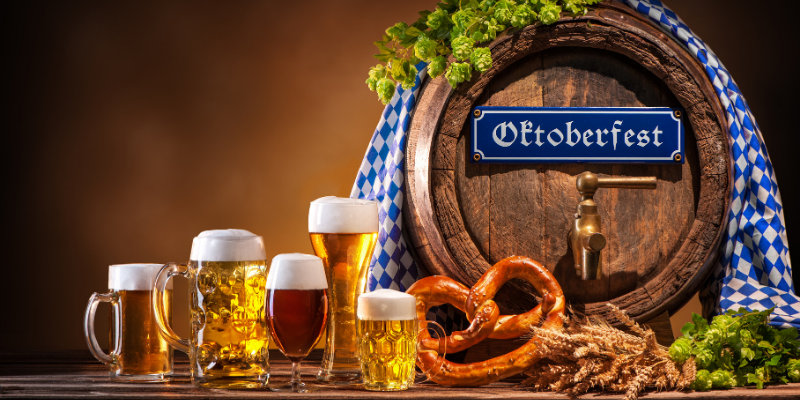Removals to Germany | What are the differences between German and Polish culture?

Germany, like Poland, has a rich cultural tradition and many distinctive customs, holidays and festivals. Here are a few of them, as well as pointing out the differences between German and Polish culture, which will come in handy when moving to Germany.
German festivals and holidays
- Weihnachten (Christmas) – celebrated similarly to Poland. Christmas Eve (Heiligabend) is a day when families get together for dinner and give each other presents.
- Ostern (Easter) – Germans decorate their homes with coloured eggs and celebrate with their families. This has similarities with Polish traditions.
- Karneval/Fasching – a festival before the start of Lent, during which parades are organised and people dress up as various characters.
- Oktoberfest – the most famous beer festival in the world, held in Munich.
- Tag der Deutschen Einheit (German Unity Day) – on 3 October, commemorating the reunification of East and West Germany in 1990.
- Sankt Martin – children walk with lanterns and sing songs in commemoration of St Martin.
- Pfingsten (Pentecost) – celebrated similarly to Poland.
- New Year’s Eve – Germans, like Poles, celebrate the end of the year with fireworks.
- Walpurgisnacht (Walpurgis Night) – on 30 April, people celebrate this night by holding bonfires and celebrating spring. Legend has it that on this night witches meet on mountain tops.
- Sankt Nikolaus Tag (Father Christmas Day) – on 6 December, as in Poland, children expect surprises from Santa Claus.
- Erntedankfest (Thanksgiving Day) – a festival to commemorate the end of the harvest.
Differences between German and Polish culture
- Approach to punctuality – Germans are famous for their punctuality and precision. In Poland, punctuality is important, but German culture is stricter in this aspect.
- Formality – Germans are more formal in business and in first interpersonal contacts.
- Language – in Germany care is taken to use the correct form of addressing people.
- Approach to the past – Germans are very aware of their turbulent history, especially during the Second World War, and make conscious efforts to commemorate the victims and educate future generations.
- Holidays – although many holidays are common to both countries, differences in traditions and customs can vary. For example, in Poland, Christmas Eve has a very deep tradition and specificity that differs from the German one.
- Gastronomic traditions – German cuisine is known for dishes such as sausages, bread, pretzels and beer. Polish cuisine is characterised by pierogi, bigos, żurek and potato pancakes.
- Attitude to authority – In Germany, the corporate culture is more hierarchical, with clearly defined authority and structure. In Poland, hierarchy is also present, but may be more flexible in some environments.
- Approach to family life – family is important in both countries, but Germans tend to have a more formal and structured approach to family life, whereas in Poland there is a strong sense of family ties and mutual support.
- Communication style – Germans tend to be more direct in their communication, while Poles can be more diplomatic, especially on sensitive issues.
- Wedding traditions – in Poland there is a strong tradition of church weddings and grand weddings. In Germany, church weddings are also popular, but many couples also opt for civil weddings.
Similarities of German and Polish culture
- Valuing the family – in both countries the family is central to many people’s lives, with a strong emphasis on spending time with loved ones.
- Valuing tradition – both Germans and Poles are proud of their history, culture and traditions, which is clearly visible in national holidays, festivals and celebrations.
- Work culture – industriousness and reliability are valued in both countries.
Cultural differences after moving to Germany
Of course, the cultural differences between Poland and Germany are more complex than outlined above. It is also worth remembering that both Poland and Germany are countries with a rich regional history, so customs and traditions can vary from region to region.Of course, these general differences and similarities can also vary depending on individual experiences and perspectives. It is also important to understand that both cultures are evolving and changing in response to globalisation, technology and other influential factors.
